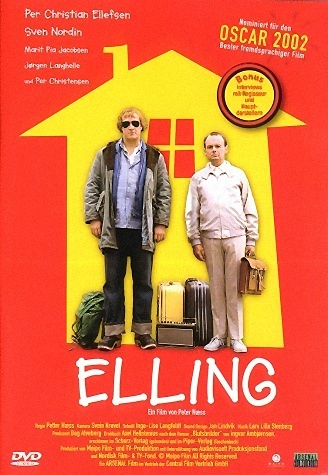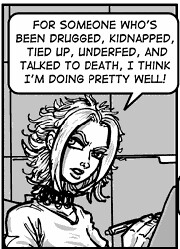MS. GOODWIN: Well, I think that’s going to be the requirement of how broadcast news should be dealing in these next months. We’ve got to make sure that as these [candidate] biographies come out, where the people have studied them, they get time just as you’re giving today. I think the questions in the debate should be different….It's understandable—we all know to whom she's referring. But it's also stupid. Ask a campaigning politician what his weaknesses are or what he has learned from his mistakes, and all you're going to get is a defensively jokey response, a blatantly self-serving response, or an intensely personal response that will have absolutely no relevance to, say, the unnecessary invasion of an Islamic country.
You’ve got to ask them about their strengths and weaknesses. You’ve got to admit what their weaknesses are and see if they can complement them by putting the people around them who have different kinds of qualities. I think if we can just shift the dialogue away—we’re spending too much time entertaining ourselves, and this is much too important, as we’ve seen from candidates who get in there who have all these terrible traits in the past, but we never knew about them, and suddenly—they’re not going to change.
And this is just what happened when the Republican candidates were asked: What is the defining mistake of your life and why?
DUNCAN HUNTER: Contemplating running as a Democrat in my very first... (LAUGHTER). (APPLAUSE).All these cringeworthy answers get us nowhere. What we have to ask of each presidential candidate, and keep on asking until we get non-bullshit answers, is where they stand in relation to the militaristic and authoritarian course that Bush and Cheney have taken over the past six years. Glenn Greenwald gets it:
RON PAUL: The only mistake I made and continue to make is I don’t speak forcefully enough for the cause of liberty and the cause of the Constitution. I’m working on it all the time. (APPLAUSE).
MIKE HUCKABEE: I think probably the greatest mistake I made was not taking good care of my own personal health for the first half of my life….
MITT ROMNEY: Probably from a political standpoint and a personal standpoint, the greatest mistake was when I first ran for office, being deeply opposed to abortion but saying, “I support the current law,” which was pro-choice and effectively a pro-choice position. That was just wrong….
RUDOLF GIULIANI: To have a description of my mistakes in 30 seconds?
(LAUGHTER).
STEPHANOPOULOS: Defining mistake, Mayor. Just one defining mistake.
GIULIANI: Your father is a priest. I’m going to explain it to your father, not to you, OK? (LAUGHTER).
STEPHANOPOULOS: OK. I guess that’s a pass. Senator McCain?
JOHN MCCAIN: You want my list? It’s right here. (LAUGHTER).
I would imagine that in 1967, in the USS Forrestal, where we’d just had a horrendous fire and the ship was headed back to the United States, and a guy came onboard and said, “We need people to go over to another aircraft carrier and stay in combat,” that was a very defining moment.
MCCAIN: I thought about that a lot in the intervening five and a half years in prison. The other mistake was when I went to a meeting among some regulators concerning a guy who was a supporter of mine. It was a mistake and one I never should have made.
SAM BROWNBACK: Probably not telling my wife and kids and parents I love them enough and just being more focused, too many times, on me instead of on them and on others is probably the biggest mistake I’ve made.
TOMMY THOMPSON: My mother-in-law died of breast cancer, my mother. My wife has breast cancer. My young daughter has breast cancer. I don’t think I was supportive enough, and that’s why I’m vowing right now to end breast cancer by the year 2015 for all the women in America. (APPLAUSE).
TOM TANCREDO: I have no doubt of what the greatest mistake in my life has been. And that is that it took me probably 30 years before I realized that Jesus Christ is my personal savior.
In 2008, the overarching political choice facing our country will be whether it will seek to contain and then reverse the profound damage of the Bush legacy, or whether we will choose to replace the president with someone eager to continue on his path, or even one who believes that Bush has been insufficiently aggressive and intends to pursue an even more militaristic and extremist course.There's no denying it: Bush is the metric. Not family love, family dysfunction, family illness, personal obesity, botched abortion stances, or, even, Jesus Christ.



No comments:
Post a Comment